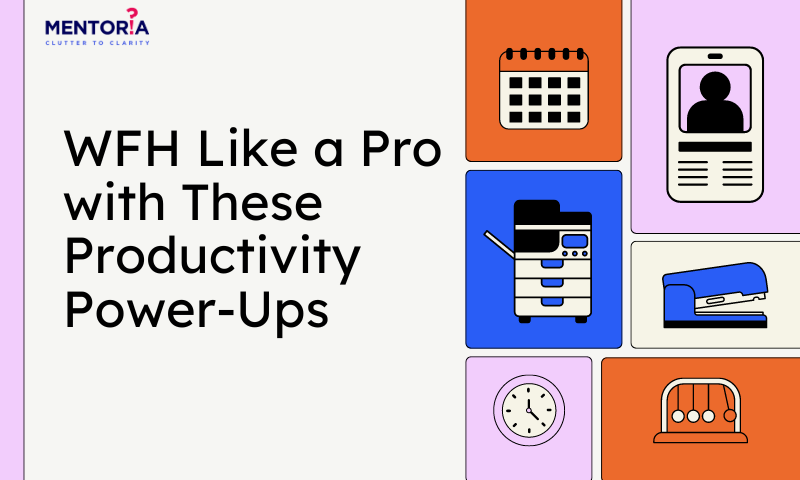Boss Bonds: 30 Simple Strategies For A Stronger Workplace Connection

We’ve all heard the saying, “It’s not what you know, but who you know,” and when it comes to the workplace, there’s often a nugget of truth in that old adage. You see, the workplace isn’t just a space for accomplishing tasks and meeting deadlines. It’s a community where relationships matter. Whether you’re in an office or working remotely from the comfort of your home, these strategies will help you bridge the gap, build trust, and strengthen connections with your colleagues.
Imagine a workplace where you can approach anyone, even your boss, for help without hesitation, where brainstorming sessions feel like exciting adventures, and where Monday mornings bring a sense of anticipation rather than dread. That’s the kind of workplace connection we’re talking about, and it’s well within your reach.
Emotional Strategies
These strategies focus on building strong emotional connections and fostering a positive work environment. They involve effective communication, active listening, maintaining a positive attitude, and offering support to create a sense of trust and camaraderie with your boss.
- Open Communication: Start with the basics: clear and open communication. Share your ideas, ask questions, and provide updates regularly. This keeps your boss in the loop and demonstrates your commitment. Effective communication fosters understanding and trust.
- Active Listening: Remember, communication is a two-way street. Practise active listening by paying attention to what your boss says, asking clarifying questions, and showing empathy. Listening attentively ensures your boss feels heard and valued.
- Be Positive: Maintain a positive attitude, even in challenging situations. Optimism is contagious! Positivity creates a more pleasant work environment.
- Anticipate Their Needs: Try to anticipate your boss’s needs and provide support or information proactively. Being proactive demonstrates your dedication.
- Show Appreciation: Express gratitude for opportunities and support from your boss. A simple thank-you can go a long way. Gratitude strengthens your professional relationship.
- Handle Constructive Criticism Gracefully: When you receive constructive criticism, take it in stride. It’s an opportunity for growth. Graceful acceptance of feedback demonstrates maturity.
- Offer Support During Tough Times: If your boss is going through a challenging period, offer your support and understanding. Being a supportive team member fosters a sense of unity.
Intellectual Strategies
Intellectual strategies emphasise personal and professional growth, problem-solving, and adaptability. They encompass seeking feedback, adapting to different management styles, continuous learning, and maintaining transparency in your work.
- Be Adaptable: In a constantly changing world, adaptability is a prized quality. Be flexible and open to new challenges. Adaptability demonstrates your versatility.
- Keep Learning: Invest in your professional development. Learning new skills can benefit both you and your boss. Continuous learning demonstrates your commitment to growth.
- Be Transparent: Honesty is crucial. If you make a mistake, admit it, and work on a solution. Transparency builds trust.
- Be Solution-Oriented: When problems arise, focus on finding solutions rather than dwelling on the issues. Solution-oriented thinking is a valuable skill.
- Adapt to Their Management Style: Different bosses have different management styles. Adapt to their preferences to make collaboration smoother. Flexibility in your approach eases communication.
- Offer Solutions, Not Just Problems: When issues arise, don’t just present the problem—propose solutions. Your boss will appreciate your proactive attitude.
- Seek Feedback: Ask for feedback on your performance. It’s a valuable opportunity for growth, and it shows you’re invested in improvement. Welcoming feedback Problem-solving skills are highly valued
Decision-Making Strategies
Decision-making strategies revolve around aligning your work with your boss’s goals, demonstrating reliability, taking initiative, and being solution-oriented. These strategies empower you to make decisions that benefit both you and your boss.
- Take Initiative: Don’t wait for instructions on every task. Take the initiative to tackle important projects. Initiative showcases your proactiveness.
- Understand Their Goals: Get to know your boss’s professional goals and align your work with them. This will show your dedication to the team’s success. Supporting their objectives strengthens your partnership.
- Be Reliable: Consistency is key. Deliver your work on time and keep your promises. Reliability builds trust.
- Share Insights: Share industry insights or knowledge that might benefit your team’s projects. Sharing valuable information adds value to your role.
- Respect Their Time: Respect your boss’s and employee’s busy schedule. Be punctual for meetings, keep them concise, and avoid unnecessary interruptions. Valuing their time reflects your professionalism.
Leadership Strategies
Leadership strategies focus on your role as a team player and supporter of your boss’s initiatives. They involve sharing credit, being a team player, attending team-building events, and respecting personal boundaries.
- Be a Team Player: Promote teamwork and collaboration within your team. Your boss will appreciate your commitment to the collective success. Being a team player enhances your working relationships.
- Respect Boundaries: Respect your boss’s personal space and boundaries. Avoid overstepping or intruding. Boundaries show your respect and professionalism.
- Offer Help to Colleagues: A collaborative work environment reflects well on you. Offer assistance to your colleagues when they need it. Teamwork shows your commitment to collective success.
- Attend Team-Building Events: Participate in team-building activities to strengthen bonds with your boss and colleagues. Team building fosters camaraderie.
- Keep Personal Matters Separate: Maintain professional boundaries. Avoid discussing personal issues at work. Separating personal and professional life preserves professionalism.
- Celebrate Milestones: Acknowledge your boss’s achievements, work anniversaries, or birthdays. Small gestures can make a big difference. Celebrating milestones shows your thoughtfulness.
- Share Credit: Acknowledge the contributions of your team members and give credit where it’s due. This fosters a positive atmosphere. Sharing credit reflects your humility.
Communication Strategies
Communication strategies are essential for effective interaction with your boss. They encompass respecting your boss’s time, learning about their interests, and maintaining clear, open, and respectful communication channels.
- Learn About Their Interests: Show genuine interest in your boss’s hobbies or interests outside of work. It can be a great conversation starter. Connecting on a personal level fosters rapport.
- Share Your Achievements: Don’t be shy about sharing your achievements. It helps your boss recognise your contributions. Sharing achievements highlights your value to the team.
- Show Enthusiasm: Passion and enthusiasm for your work are infectious. Let your boss see your genuine excitement for what you do. Enthusiasm can boost team morale.demonstrates your commitment to personal development.
- Support Their Initiatives: Show your commitment to the team by supporting your boss’s projects and initiatives. Being a team player strengthens your bond.
Mentoria: Your Career Development Partner
In conclusion, building a strong and positive relationship with your boss is not only beneficial for your career but also for your overall job satisfaction. By implementing the 30 effective strategies discussed in this article, you can create a work environment where mutual respect, clear communication, and collaboration thrive. Remember, a healthy boss-employee relationship is a two-way street, and your efforts can make a significant difference.
At Mentoria, we understand the importance of career growth and professional development. Our dedicated team of career experts can provide you with personalised guidance and support to help you navigate your career path effectively. Whether it’s improving your communication skills, enhancing your leadership abilities, or strengthening your relationships at work, Mentoria is here to assist you. With our comprehensive resources and expert advice, you can unlock your full career potential.









